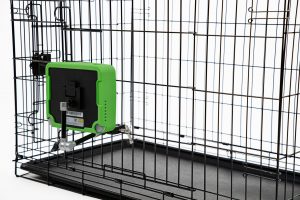Smart trackers used to manage populations of endangered rowi kiwi will be one of the projects discussed in a technology-themed Biodiversity Forum next week.
Delayed from April due to Covid-19, the 2020 forum will focus on how technology is being used to enhance conservation projects in Marlborough.
Department of Conservation (DOC) senior ranger Tracey Dearlove will be speaking about how intelligent trackers linked to a plane have successfully boosted the population of rowi kiwi in the South Island.
First introduced about 10 years ago, the technologies have made it possible to monitor more birds in a less invasive way, Dearlove said.
“Back in the day there were full teams out there monitoring these birds and the gains were quite small in terms of the birds coming through, because of those really intensive methods we had to use.
“Now we have an accurate way of doing that quickly, so we can monitor more birds and get more output through, and much less disturbance to the birds themselves.”
Once found along the West Coast and up into Marlborough, by the late 1990s rowi kiwi numbers were reduced to just 150 birds south of Ōkārito Forest on the West Coast.
Before recent technologies, conservation efforts required far more resources.
Through the use of intelligent trackers and a programme called Sky Ranger, fitted to the wing of a plane, the Operation Nest Egg project was able to monitor the small kiwi.
The plane flew over Ōkārito Forest and was able to pick up their pulse rate, collecting the information for DOC.
“That tells us what the bird’s doing, so it gives us an indication of when they start breeding,” Dearlove said.
“We can tell how long the bird’s been incubating an egg for, we can tell if it’s got a chick and how old the chick is based on that behaviour profile.”
At 45-days-old, the eggs were taken to a captive facility in Franz Joseph, before being transferred to Willowbank Wildlife Reserve in Christchurch once they were hatched.
The trackers alerted the project to when they could retrieve eggs.
Juvenile chicks were then taken to predator-free islands in the Marlborough Sounds – mainly Motuara Island – to protect them from stoats.
“Those birds go out there and spend roughly a year on the island getting big and strong. Once they’re over 1kg they’re much better able to defend themselves from stoats so at that point we start releasing them back to the mainland.”
Without this programme, Dearlove said rowi kiwi had about a 5 per cent survival rate throughout their first year, but had 85 per cent if protected from predators.
Current population estimates were about 600 rowi kiwi, moving them from a critically endangered species to nationally vulnerable.
Operation Nest Egg has boosted populations of rowi kiwi to 600, up from 150 in the late 1990s.
Dearlove would be one of several speakers at the Biodiversity Forum, held at Endeavour Park Pavilion on October 18.
DOC community ranger Wendy Sullivan encouraged interested members of the public to attend.
“You don’t have to belong to a community group or any agency, just any interested member of the public can come along.
“They might find a community group there that they want to join, or they may just take away some new information and new friendships.”
Dearlove said the forum was a great opportunity to share the successes of the new technologies, while also educating about predator control.
Lire la suite: www.stuff.co.nz







